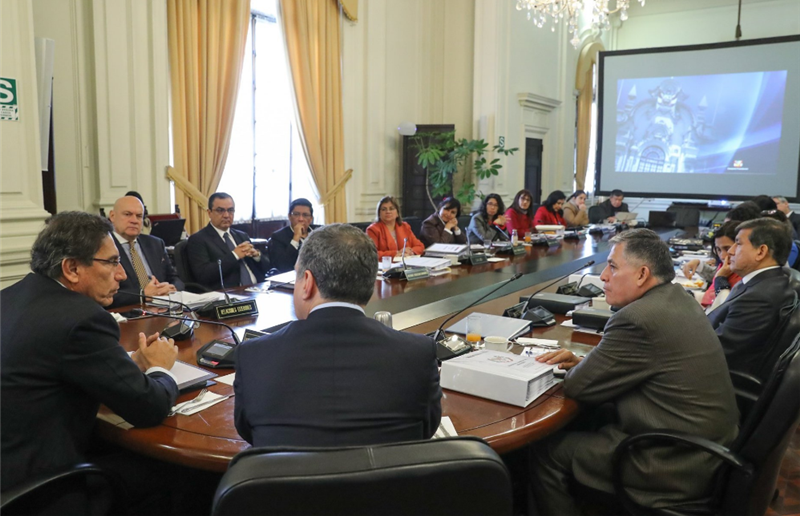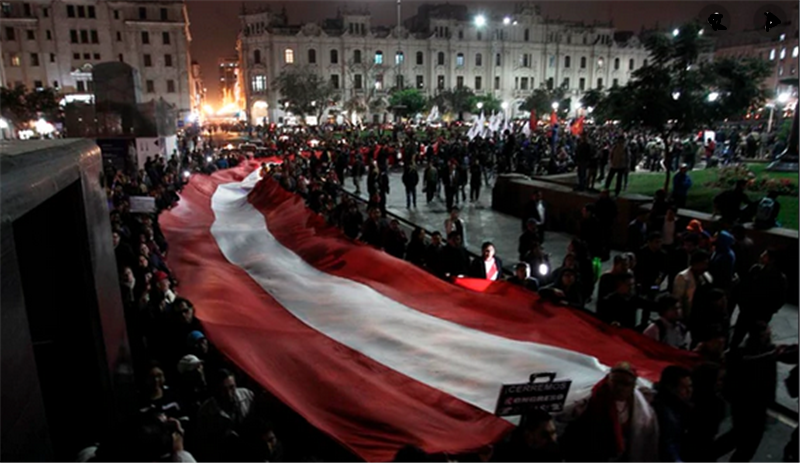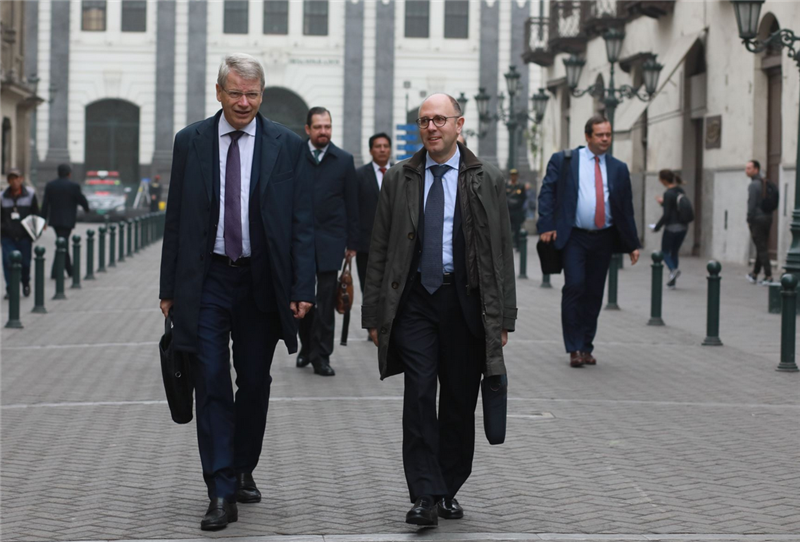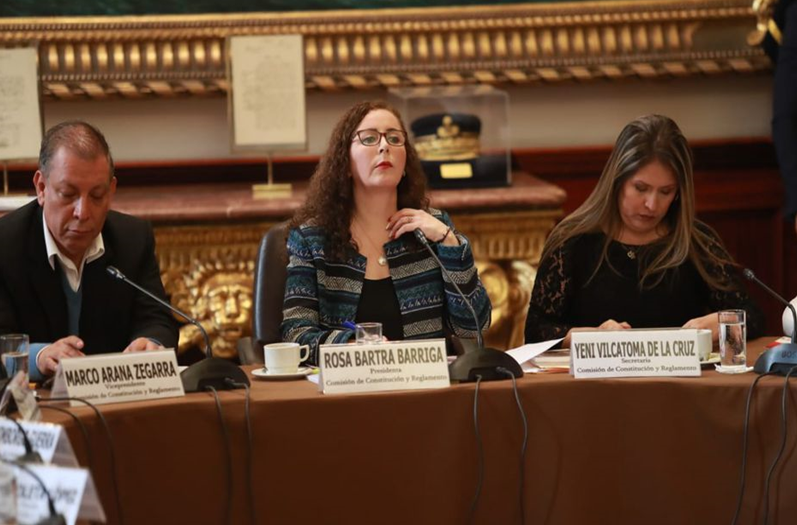
President Martin Vizcarra has called an extraordinary cabinet meeting for Friday, the second meeting since his return on Thursday from the UN General Assembly and Pacific Alliance meetings in New York.
Early Thursday, the Constitution Commission in Congress announced its decision to shelve the President’s proposal for a constitutional reform to bring presidential elections forward a year — to April 2020. The President believes it is the only viable solution to the now three years of consistent confrontation and stonewalling by the congressional majority led by Keiko Fujimori’s Fuerza Popular party.

Another protest march gathered in the Plaza San Martin Thursday night to demand Vizcarra close the Congress, a theme of several marches since last year. Meanwhile, the president of Congress, Pedro Olaechea, used social media to demand that Vizcarra “respect the Constitution.” There were also rumors spread on social media that the Defense minister, retired Admiral Moscoso, had resigned from the cabinet but these were immediately denied by the Defense Ministry. One of the questions doing the rounds is if the armed forces would support the President if he decides to close Congress.
In July, the President presented several proposals to Congress for political and justice reforms. Most were approved but none in their original form and several not even respecting the spirit of the reform. One proposal was flatly refused, that of removing parliamentary immunity, and the proposal to cut back the current government period by a year was dragged through weeks of paperwork in the Congressional Commission before that commission on Thursday refused to put it to the floor for debate and shelved it permanently.

At the beginning of the week, members of the Venice Commission, an advisory body of the Council of Europe on constitutional issues, were in Lima at the invitation of Congress. The purpose was for them to meet with the Constitution Commission to discuss the issue of early elections and whether the President has the right to close Congress. Although the Venice team’s opinions would not be binding, lawmakers hoped to hear support for their refusal to approve Vizcarra’s viewpoints. The meeting, however, was an embarrassing litany of complaints from lawmakers that veered far off any judicial or academic discussion of the issues on the agenda. The Venice team later met with Premier Salvador del Solar, Justice Minister Vicente Zeballos and Foreign Relations minister Néstor Popolizio.
The congressional majority of Fuerza Popular, with the small (5-member) but politically seasoned Apra party, have since 2016 blocked the government’s reforms. President Pedro Pablo Kuczynski lost two Education ministers and a full cabinet before he was forced to resign rather than face an impeachment that is a political exercise that bears no relation to legal argument. The Congress believed that by installing Vizcarra, then vice-president, as head of government that they would have their way. But just then, in July 2018, a corruption scandal involving a network of magistrates and district attorneys in the Superior Court of Callao and the Supreme Court of Lima hit the headlines and led the new President to announce sweeping political and judicial reforms that would deeply affect Congress, which continues to manipulate appointments and has been covering for several of the magistrates, including one who fled to Spain and is now to be extradited. Additionally, under parliamentary immunity, it has protected several lawmakers who face different criminal charges.

More recently, Fuerza Popular and Apra have moved to control the election of six members to the seven-member Constitutional Court, who serve a five-year term. Although the term for six members expired in June, there were no candidates put forward until last week, when within half an hour a congressional commission nominated and approved 11 candidates, several of whom have questionable experience and clear partisan leanings. Even the Inter-American Human Rights Commission is urging “transparency” and expressing its concern because the special commission in Congress has “not made public the selection criteria” they used for the nominations. One candidate has since resigned.
Vizcarra believes the only way out of the current situation is to bring the general elections forward, and he told Congress earlier this month that he would give them until Sept. 30 to approve the proposal. It is the date the Congress has now chosen to elect the new members of the Constitutional Court.
“We will not stand by with our arms crossed,” said Premier Salvador del Solar today when the Constitution Commission announced its decision on the early elections. It remains to be seen what President Vizcarra and his cabinet decide this Friday. Analysts warn that if the President does not close Congress, the congressional majority have the votes to call for his ousting.





